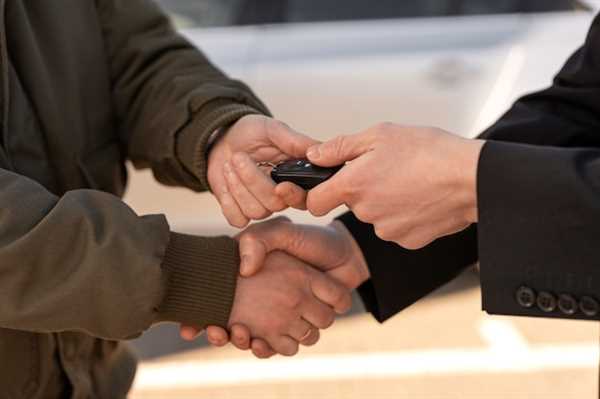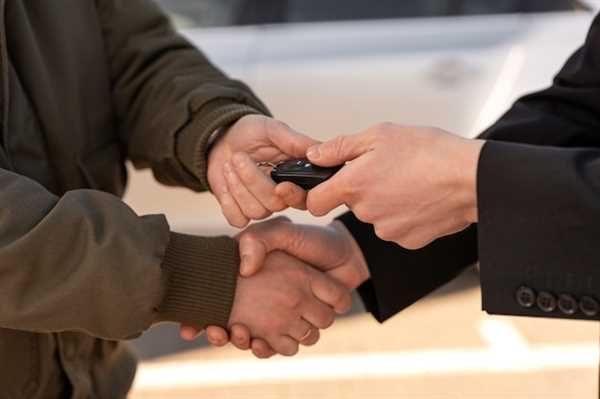
Research is key. Study auction platforms beforehand to understand vehicle prices and histories. Websites like Carfax or AutoCheck can provide essential details, allowing you to pinpoint potential deals. Prioritize knowledge of the specific make and model you’re interested in to avoid hasty decisions.
Inspect vehicles personally whenever possible. Look for signs of previous damage, wear and tear, or maintenance issues that could affect longevity and performance. Bring a trusted mechanic or knowledgeable friend if you’re uncertain about the condition of a car.
Establish a firm budget. Set a maximum bid limit based on your research and stick to it. Auctions can be competitive, and it’s easy to get carried away in the moment. Remember, additional costs such as registration and taxes can add up, so factor those into your financial plan.
Finally, be strategic with your bidding. Start low and gauge other bidders’ interest. This approach can sometimes lead to acquiring a vehicle below market value. Understanding bidding patterns will give you an edge in securing a great deal.
Understanding Auction Terminology and Processes

Familiarize yourself with key terms to enhance your experience. Understand “reserve price,” which is the minimum amount a seller is willing to accept. If bidding fails to meet this amount, the vehicle remains unsold. Knowing this helps in formulating your bidding strategy.
Be aware of “bid increments,” the minimum amount by which the current bid must increase. This can vary based on auction rules. Knowing increments assists you in planning your offers effectively.
Watch for the term “fall of the hammer,” signifying the end of bidding. Once the auctioneer drops the hammer, the highest bid becomes binding. It’s crucial to be attentive at this moment to secure your desired vehicle.
Often, “buyer’s premium” applies, an additional fee you pay on top of the winning bid. This percentage goes to the auction house. Always factor this into your overall budget to avoid surprises.
Research “lot number,” which identifies each vehicle in the sale. Keeping track of lot numbers makes locating and reviewing vehicles easier. Organizing your list helps you focus on potential purchases.
Lastly, explore “as-is” conditions. Most auctioned vehicles are sold as-is, meaning no guarantees or warranties apply. Ensure thorough inspections before making any commitments to avoid unexpected repairs.
Incorporate these insights for successful acquisitions at public sales. Understanding terminology and processes enables informed decisions and enhances your overall experience.
Conducting Thorough Vehicle Inspections Before Bidding

Check the car’s VIN against auction listings to confirm authenticity. Look for signs of rust, damage, or poor repairs. A detailed visual inspection of the body, including doors, fenders, and bumpers, is crucial for assessing condition.
Verify the state of the tires. Uneven wear can indicate alignment issues. Ensure tires have adequate tread depth, as replacements can add to expenses.
Inside the vehicle, inspect the upholstery and dashboard for signs of wear. Check for any warning lights illuminated on the dashboard. Start the engine and listen for unusual noises that might indicate mechanical problems.
Test all electronic components, including windows, locks, and lights. Ensure they function correctly. Evaluate the brakes for responsiveness and check fluid levels under the hood.
If possible, arrange for a professional mechanic to conduct a pre-bid inspection. Their expertise can provide insight into potential future repairs and overall reliability.
Research the model’s common problems. Knowledge of specific issues for the make and year can guide your evaluation and inform your bidding strategy. Utilize online resources for feedback from current owners.
Document your findings thoroughly. Taking notes and photos can help you recall details and make informed decisions when bidding.
Lastly, set a budget beforehand. Knowing your maximum bid based on the condition and market value will keep your purchasing decisions rational during the auction.
Strategies for Winning Bids and Negotiating Prices
Identify your maximum price before participating in an auction. Having a predefined budget helps maintain discipline and prevents impulsive decisions. Consider all costs including taxes, fees, and potential repairs.
Research the specific models you are interested in. Use resources like Kelley Blue Book or Edmunds to determine fair market values. Understanding the typical selling price of a used vehicle empowers you during bidding.
Attend multiple auctions prior to placing any bids. Observe bidding patterns, recognize bidding increments, and gauge competition. This knowledge assists in developing an effective strategy.
Study seller history and reputation. Investigate their feedback and previous auction results. Trustworthy sellers often maintain consistent standards, providing insight into vehicle quality.
Utilize knipp strategies: arrive early to inspect the vehicles and assess their condition. Look for discrepancies in the auction description versus actual appearance. Make notes to leverage in negotiations.
Engage in tactical bidding. Start with small increments to test your competition. This method can frustrate others and may lead them to abandon higher bids, allowing you to secure the car at a better price.
Be prepared for negotiations once the auction ends. If you don’t win the bid, consider contacting the seller directly. Often, sellers are open to discussions regarding final prices, especially if the auction did not reach their expectations.
Know how to walk away. If the price exceeds your limit or the vehicle shows signs of unreliability, don’t hesitate to decline. There will always be other opportunities. Patience often leads to finding the right deal.
Lastly, share your tips for buying at auctions with others. Engaging in discussions about strategies will broaden your knowledge base and potentially uncover new approaches.



